World
Arriving in Lebanon: Resilience Amidst Crisis
Explore the spirit of resilience in Lebanon as it navigates through crisis. Discover the stories of hope, community strength, and the enduring culture that shine amidst challenges, showcasing the nation’s unwavering determination.
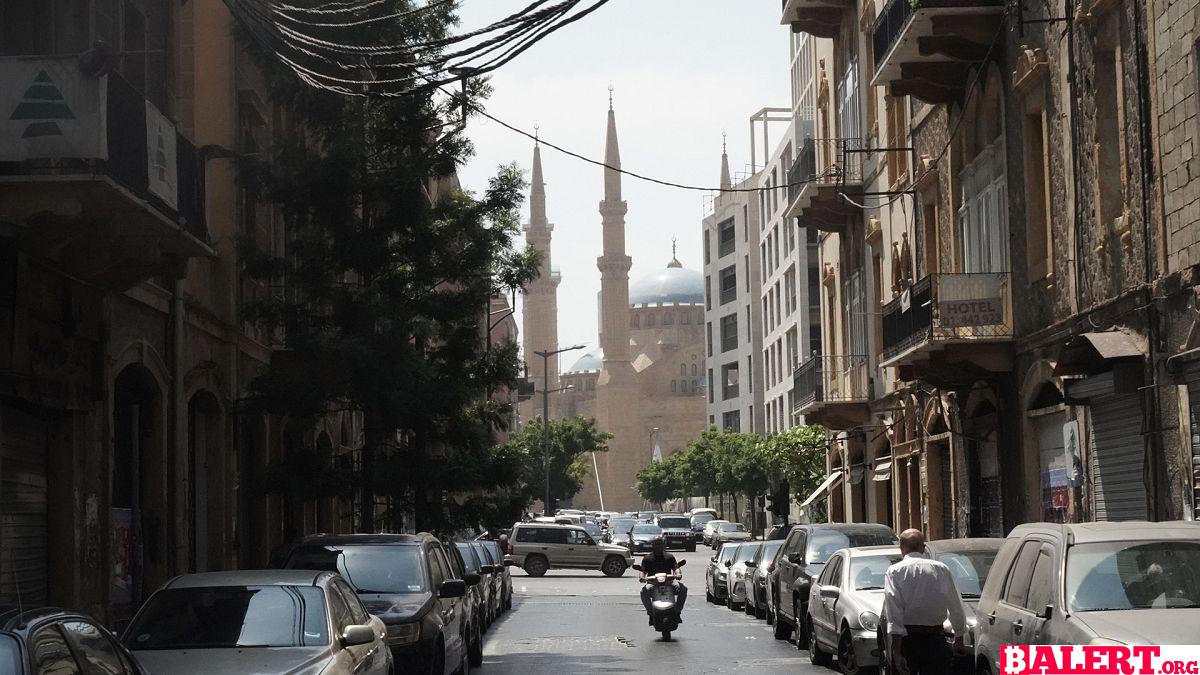
Arriving in Lebanon: A Mixed Blessing
I hear the cheerful voice of a child exclaiming, “On est arrivés au Liban” — we have arrived in Lebanon. I can vividly imagine the child’s beaming face peering through the airplane window as our Transavia flight gently lands in Beirut, the vibrant capital of Lebanon. It’s mid-July, and the aircraft is bustling with families. Most passengers are Lebanese expatriates returning from Europe, eager to reconnect with their homeland for summer vacations. However, their excitement is tinged with the reality of change.
A young woman in her thirties, originally from Tripoli but now residing in Australia, shares her perspective: “We are here for 10 days to see our relatives. We also traveled to Europe. Life is good where we are now.” When asked about the ongoing tensions at the border, she responds, “It’s a mix of reasons. The financial situation in the country plays a significant role.” Yet, no one anticipated the turmoil that would soon unfold.
The Unfolding Crisis
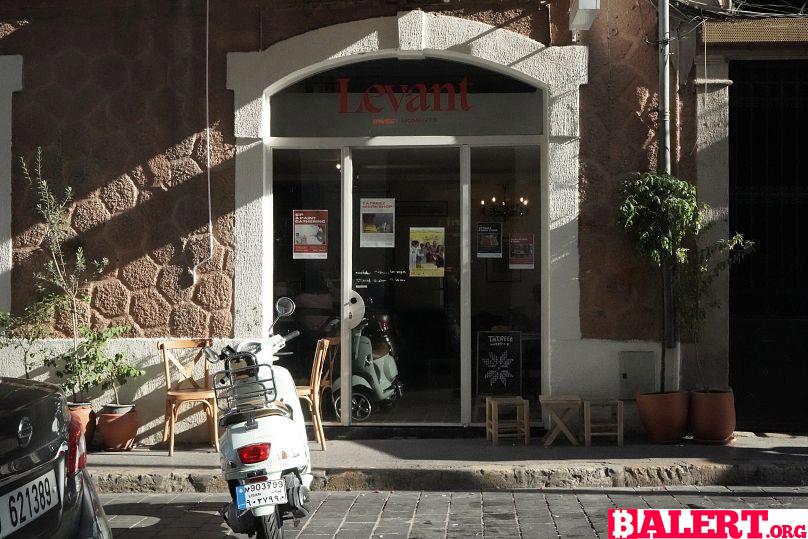
Just days later, chaos erupts. A rocket attack on the Druze town of Majdal Shams in Northern Israel tragically claims the lives of 12 children, igniting a fierce Israeli response. Although Hezbollah is blamed for the attack, the militant group vehemently denies responsibility. Calls for an independent investigation come from various quarters, including EU foreign policy chief Josep Borrell.
The following Tuesday, Israel strikes back, targeting Fuad Shukr, one of Hezbollah’s high-ranking commanders. The assault hits Haret Hreik, a suburb of Beirut known as a Hezbollah stronghold. In the wake of these events, hundreds of flights to and from Beirut are canceled, and numerous embassies issue warnings to their citizens, advising them to avoid travel to the Lebanese capital.
Fortunately, I had departed the country before these flight disruptions began, but I can’t help but think of the families I encountered on that plane. Will they manage to return home safely to Australia? Where are they now?
The Human Toll
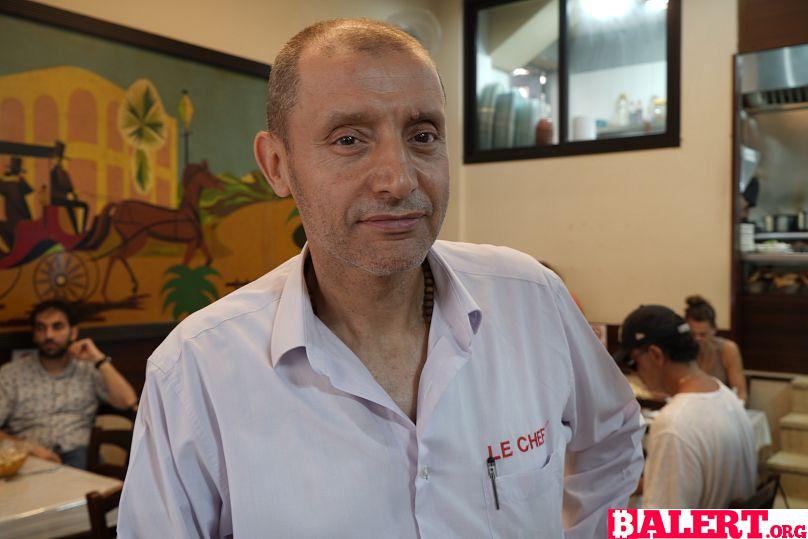
As evening descends over Beirut, I reach out to my friend Mariam, an Arabic language teacher residing in the city. “I am fine,” she reassures me, although her tone carries a hint of distress. “But one of my uncles was injured in the explosion. I hope it’s nothing serious.” Reports indicate that at least five people have died in the Haret Hreik attack, with several others suffering injuries. Hezbollah has yet to confirm Shukr’s death, only stating that he was present in the targeted building.
Rami Khouri, a fellow at the American University of Beirut, offers insight: “After 20-25 years of continuous military exchanges among Hezbollah, Hamas, Israel, and others, they understand that this cycle doesn’t yield any solutions. None desire a full-scale war.” Yet, he warns, “What if a broader conflict is inadvertently triggered?” He reflects on past instances, noting, “We witnessed a controlled response when Iran previously attacked Israel. Very few casualties occurred then.“
“It’s not a game; it’s a serious situation,” Khouri explains, “but it resembles a scripted drama. We remain in a phase of prearranged responses from both sides.”
Resilience Amidst Uncertainty
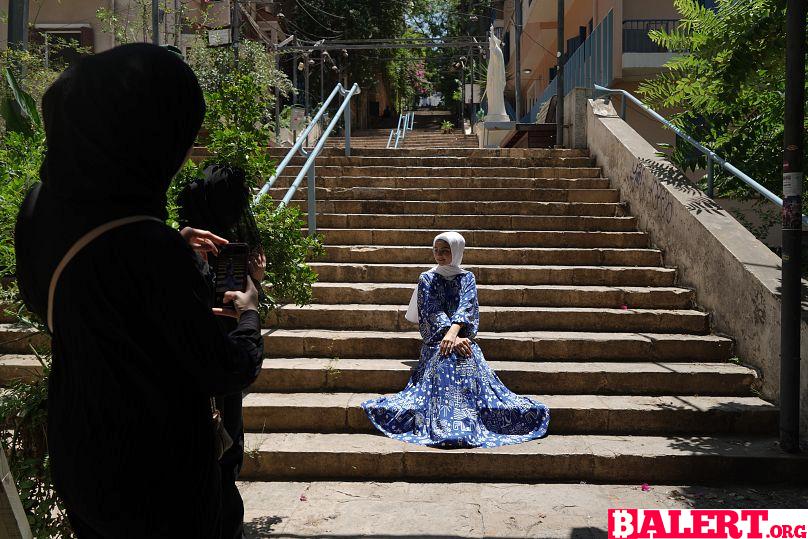
Before leaving Beirut just days prior to the attack, I was struck by the resilience of the locals. Their sense of community and ability to adapt to the unpredictability of life were truly inspiring. However, I wonder how long they can maintain this spirit, constantly balancing memories of past devastations with the present. Khouri believes that if regional tensions escalate, we may not see a full-blown war akin to the destruction witnessed in 2006.
However, the situation remains volatile. Just hours after the assault in Southern Beirut, Hamas confirms the death of its political leader, Ismail Haniyeh, in an Israeli attack in Tehran. Within hours, two key figures in Iran’s network are eliminated, further escalating tensions.
Even before analyzing the implications of these events, it’s evident that Haniyeh’s assassination has shifted the dynamics. Iran’s Supreme Leader, Ayatollah Ali Khamenei, vows “harsh punishment” for Israel, prompting the UN to convene an emergency meeting. This escalation comes on the heels of rising hope for a ceasefire between Israel and Hamas, only to be dashed as the situation spirals out of control.
Impending Conflict
“The likelihood of avoiding a broader conflict is increasingly unrealistic,” warns Michael Young, an analyst specializing in Lebanese affairs. “Actors involved have backed themselves into a corner, where they feel compelled to act to maintain their deterrence.” He elaborates, “Israel would prefer to draw the US into conflict with Iran,” recalling previous attempts to provoke American involvement, such as the bombing of the Iranian embassy in Damascus last April.
Young emphasizes that Israel cannot engage Iran and its allies independently; they require US support. Yet, he notes, “The US administration seems to lack influence over Israel at this juncture. What I observe is chaos in Washington.” He warns that a full-scale war could devastate Lebanon, stating, “It would not only be economic destruction; it would dismantle the very fabric of society, making recovery almost impossible.”
A Nation’s Struggle for Peace
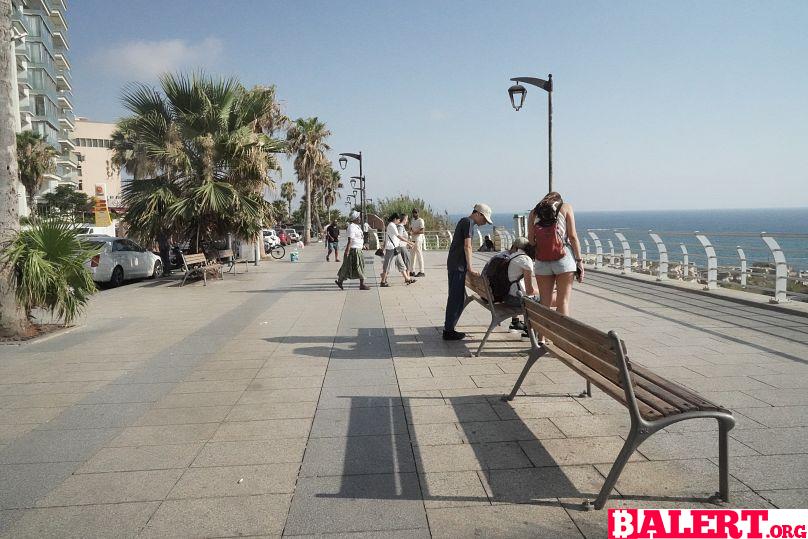
Having endured a 15-year civil war and the 2006 conflict with Israel, Lebanon has become accustomed to navigating a myriad of crises. The nation is still reeling from the catastrophic port explosion that rocked Beirut in 2020, and it now grapples with one of its most severe economic downturns. The fallout from the war in Ukraine has exacerbated the situation, resulting in a staggering 50% drop in GDP and plunging 80% of the population into poverty.
Once reliant on tourism as a key economic driver, the industry now languishes. I recall a taxi driver lamenting, “There are no more tourists; they have vanished.” This sentiment resonates with me as I stroll through Rue Gouraud, a historic street in the heart of Beirut known for its vibrant dining scene. One establishment, “Le Chef,” founded in 1967 by François Bassil, stands as a testament to Lebanon’s resilience. Having survived the civil war and the recent port explosion, the restaurant remains a beloved fixture in the city.
Charbel Bassil, François’ son and current owner, greets each patron with warmth. It’s lunchtime, and the restaurant is bustling. “We live day by day, relying on our local clientele,” he shares. “But ultimately, all we desire is peace and for tourists to return. Business is down by 80%.”
Community and Hope
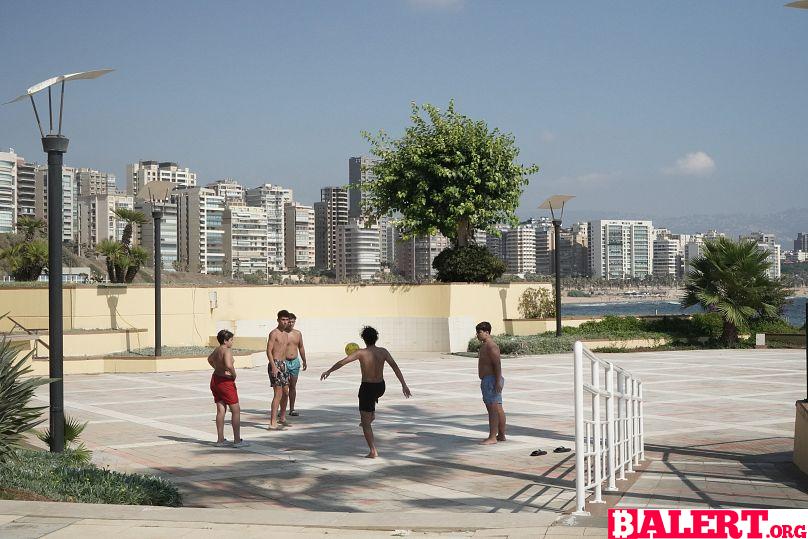
As I leave “Le Chef“, I encounter a young model posing for photos. Her name is Fatima, a 20-year-old influencer full of optimism. “The economic crisis is troubling,” she admits, “but we continue to live our lives; resilience is part of our identity.”
Joseph, the owner of a newly opened bakery called “Levant“, offers a different perspective. He returned to Lebanon from France last autumn, just before the outbreak of conflict in Gaza. “Despite the risks, I’ve never considered reversing my decision,” he states, acknowledging the hardships faced by his employees, some of whom have lost homes and relatives due to bombings in the south. “The sense of community in Lebanon is unique,” he adds.
The rich tapestry of cultures and diverse religious communities is one of Lebanon’s primary attractions, yet political stability remains elusive. The inability to bridge differences has impeded the creation of a government that truly represents all Lebanese citizens. As the possibility of a ceasefire in Gaza fades, Young asserts, “We are all bearing the consequences of Netanyahu’s political survival.”
A Call for Understanding
On Thursday, just hours after Haniyeh’s assassination, attention turns to a speech delivered by Hezbollah leader Hassan Nasrallah. His remarks hint at a deeper understanding of both Iran and Hezbollah’s responses to Israel’s recent actions. The message is unmistakable. Observers note a significant shift in Nasrallah’s tone, which has taken on a more assertive edge in recent weeks. “Be happy for a short while, and you will cry for a long time,” he warns the Israeli populace. “We have stepped into a new phase across all fronts.”
Nasrallah characterizes the assault on Beirut’s Southern suburbs as an outright act of aggression by Israel, rather than a simple retaliatory measure. Some interpret his statements as veiled hints of a potential strike against Israel, mirroring Israel’s own tactics in Lebanon and Iran.
In a moment of urgency, I call Mariam to gauge the mood among her peers. “Yes,” she admits, “people are genuinely worried now, and I won’t sugarcoat it.” Anxiety fills the air as I reflect on my conversation with Joseph, who embodies resilience and a newfound happiness in Lebanon. He expresses a desire for the country to be remembered for something beyond conflict. Most poignantly, I recall the sticker adorning his café’s entrance: “See you in Beirut, whatever happens.” This sentiment encapsulates the enduring spirit of the Lebanese people, who continue to hope for peace amidst uncertainty.
World
Dominique Pelicot Testifies in Harrowing Rape Trial
Join us as Dominique Pelicot courageously testifies in a harrowing rape trial, shedding light on the complexities of trauma and justice. Her powerful story raises crucial questions about the legal system and the importance of support for survivors.

Dominique Pelicot Takes the Stand in Shocking Rape Trial
In a courtroom drama that has captivated France and garnered international attention, Dominique Pelicot, the man at the center of a harrowing rape trial, finally addressed the court. With tears streaming down his face, he recounted how his wife had been instrumental in helping him cope with a tumultuous past marked by trauma. He revealed that he had endured a sexual assault at the tender age of nine while hospitalized, and he also witnessed a gang rape during his teenage years while working as an apprentice electrician on a construction site.
“She didn’t deserve this, I acknowledge that,” Mr. Pelicot stated, his voice barely audible as he struggled to convey his emotions. The gravity of the situation weighed heavily on him, and the courtroom fell silent, straining to catch his every word.
Now 71 years old, Mr. Pelicot faces serious allegations of drugging his wife, Gisèle Pelicot, whom he has been married to for half a century, over a span of nearly ten years. Prosecutors contend that he used drugs to render her comatose, allowing him to rape her repeatedly. Furthermore, authorities allege that he went so far as to invite numerous men into their home, facilitating a nightmarish scenario where they, too, engaged in the assault of his wife.
Overall, 51 men, including Mr. Pelicot, are on trial concurrently, primarily facing charges related to the aggravated rape of Ms. Pelicot. Among them, one individual has already pleaded guilty to similar crimes, admitting to drugging his own wife to assault her and inviting Mr. Pelicot to partake in the horrific act while she was incapacitated.
Mr. Pelicot’s unexpected testimony came after a tumultuous start to the trial. Just a week in, he was stricken with severe health issues that forced him to miss four consecutive days in court. The head judge ultimately decided to postpone proceedings, as Mr. Pelicot was diagnosed with kidney stones, a kidney infection, and prostate complications, adding yet another layer of complexity to this already harrowing case.
World
Meta Bans Russian State Media Outlets from Social Media Platforms
Explore the implications of Meta’s decision to ban Russian state media outlets from its social media platforms. Understand the impact on information dissemination and the ongoing battle against misinformation in the digital landscape.

Meta Imposes Global Ban on Russian State Media Outlets
In a significant move, Meta Platforms, Inc., the parent company of Facebook, has announced the prohibition of Russian state media outlets, including RT (Russia Today) and Rossiya Segodnya, from all its social media platforms. The decision stems from the company’s concerns regarding the deceptive strategies employed by these media organizations to execute covert influence operations across the internet.
Meta made this announcement on Monday, emphasizing that the ban will be enforced worldwide across its various platforms, such as Instagram, WhatsApp, and Threads. The rollout of this ban is expected to take place over the coming days.
Statement from Meta
A spokesperson for Meta elaborated on the decision, stating, “After careful consideration, we have expanded our ongoing enforcement actions against Russian state media outlets. As a result, Rossiya Segodnya, RT, and other affiliated entities are now banned from our applications globally due to their involvement in foreign interference activities.”
For further insights into this development, watch the video in the player above.
World
Trump Recalls Alleged Assassination Attempt While Golfing
Explore Donald Trump’s chilling recollection of an alleged assassination attempt he experienced while enjoying a round of golf. Delve into the tense moments and his reflections on safety, fame, and the unpredictability of public life.

In a recent interview on the social media platform X, Republican presidential nominee Donald Trump recounted a harrowing incident he claims to have experienced while playing golf. Trump described how, during a peaceful Sunday morning round with friends, the tranquility of the day was abruptly shattered by the sound of gunfire in the air.
“It was a beautiful day, everything was just perfect,” Trump reflected. “Then all of a sudden, we heard shots being fired—probably around four or five in total.” He went on to explain that a Secret Service agent was the first to spot the suspect, who was allegedly armed with an AK-47, a powerful assault rifle.
“The agent saw the barrel of the weapon and immediately took action, returning fire at the barrel and aiming in the direction of the bushes,” Trump detailed. “I would have loved to have sunk that last putt, but we decided it was best to leave the scene promptly.”
Trump expressed his gratitude towards the agents and a vigilant civilian who aided in tracking down the suspect, who was eventually apprehended following a high-speed chase.
Suspect Faces Multiple Federal Gun Charges
The FBI has identified the suspect as Ryan Wesley Routh, accusing him of targeting Trump during his time at the golf club in West Palm Beach, Florida. According to an FBI report, Routh had allegedly hidden among the hedges of the golf course for an astonishing 12 hours. Authorities discovered an SKS-style assault rifle, a GoPro camera, and a bag of food at the scene.
The 58-year-old Routh is now facing two serious federal gun charges. If convicted on both counts, he could face a combined maximum sentence of 20 years in prison. Notably, neither of the charges is directly related to an assassination attempt. The first charge pertains to possessing a firearm despite a prior felony conviction, which carries a potential 15-year sentence, a fine of $250,000 (€225,000), and three years of supervised release.
The second charge involves possession of a firearm with an obliterated serial number, which could result in a five-year prison term, the same financial penalties, and also three years of supervised release. As the investigation continues, additional charges could be forthcoming.
While the motive behind Routh’s actions remains unclear, his digital footprint reveals strong political affiliations, particularly concerning issues surrounding Ukraine and China. Routh consistently expressed support for Ukraine across various social media platforms, even claiming to have orchestrated a recruitment scheme for international volunteers aiming to assist Ukraine in its fight against Russia’s invasion. This behavior has been denounced by Ukrainian soldiers and members of the International Legion, who disavowed Routh’s actions and motives.
-

 Business4 months ago
Business4 months agoObituary: Dan Collins
-

 Business3 months ago
Business3 months agoThe Significance of Jackson Hole: A Central Banking Tradition
-

 Gaming5 months ago
Gaming5 months agoMore than a thousand students vowed not to work for Amazon and Google due to the Nimbus Project.
-
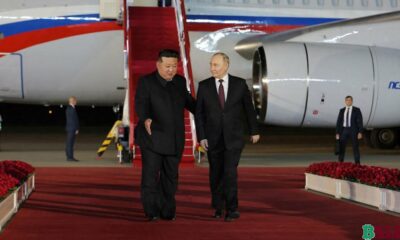
 World5 months ago
World5 months agoRussia and North Korea Strengthen Defense Ties
-

 Business5 months ago
Business5 months agoJump Crypto Invests $10 Million in Pro-Crypto PAC
-

 Article5 months ago
Article5 months agoCreative Design Applications Developed with Artificial Intelligence
-

 Tech2 months ago
Tech2 months agoNew Leaks and Features About the Samsung Galaxy S25 Ultra
-
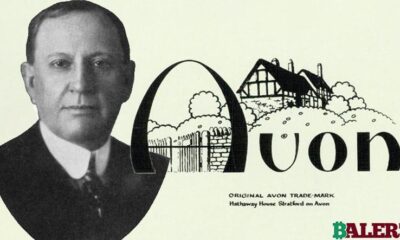
 Gaming5 months ago
Gaming5 months agoThe Inspirational Success Story of Avon’s Founder Who Sold Books Door to Door














